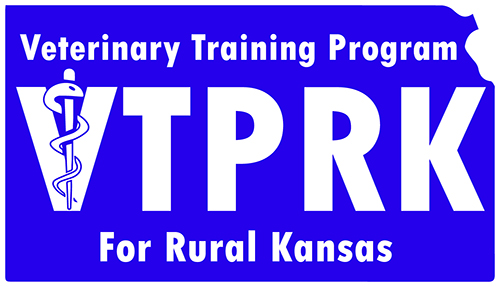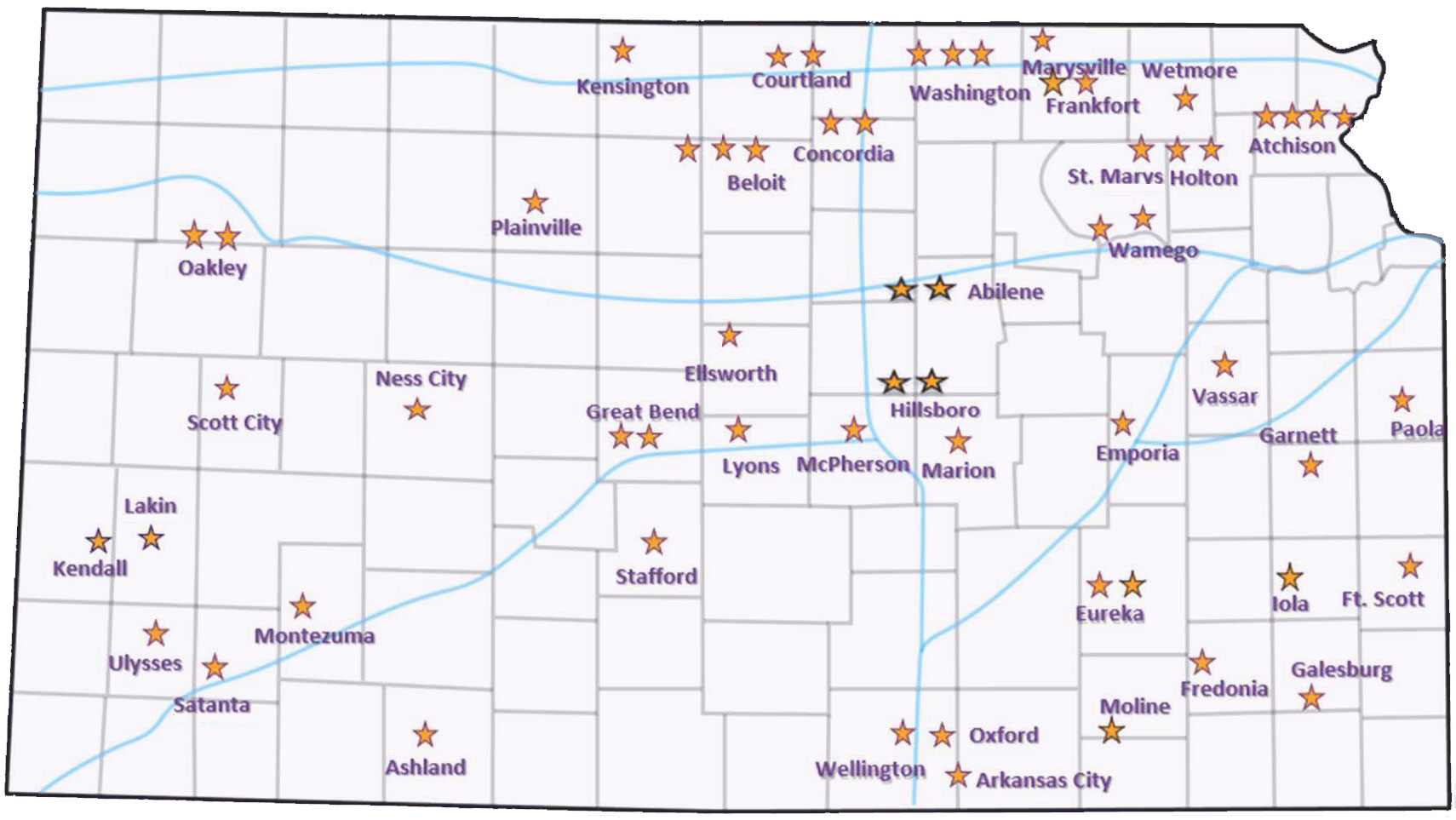Veterinary Training Program for Rural Kansas
 The Veterinary Training Program for Rural Kansas (VTPRK) was established by the Kansas Legislature in 2006 to provide a financial incentive for graduates to practice in rural Kansas communities. Program participants currently receive up to $25,000 annually to support tuition for up to four years.
The Veterinary Training Program for Rural Kansas (VTPRK) was established by the Kansas Legislature in 2006 to provide a financial incentive for graduates to practice in rural Kansas communities. Program participants currently receive up to $25,000 annually to support tuition for up to four years.
Each student in the program is required to participate in additional activities beyond the minimum requirements for their veterinary degree. The scholars have specifically designed learning opportunities in cattle production, technical skills, small business management, marketing and public health. An advisory committee has been established for the purpose of selecting students, determining the needs of the program and providing input about the program to the College of Veterinary Medicine.
Upon completion of their Doctor of Veterinary Medicine degree, each student is required to work at a full-time veterinary practice in one of 95 Kansas counties with fewer than 40,000 residents. For each year the student works in rural Kansas, up to $25,000 per year of qualifying students' loans would be forgiven.
Recipients to Date
- 89 students have been admitted to the program.
- 39 males, 50 females
- 98% of graduates have/are fulfilling their obligations to practice in a rural community.
- Beyond the 4-year obligation:
- 94% are practicing in a qualifying county.
- 77% remain in the practice of origin.
Educational Objective
Prepare graduates for long-term success as a veterinary practitioner in rural Kansas. To
achieve this goal, purposeful training opportunities were designed to prepare students for rural practice. Many of these opportunities are available for all veterinary students, but are required for VTPRK students.
Program Requirements
Complete Food Animal Veterinary Certificate (FAVC) (Available to all veterinary students)
Each VTPRK student will complete 14 credit hours, including:
Issues in Rural Practice
Rural practice management
Rural business management
Production medicine
FAVC students must pass a technical skills assessment and present a capstone seminar.
Attend KS June Veterinary Continuing Education Conferences (Available to all veterinary students)
Each VTPRK student should attend the June Conference and initiate networking with other KS practitioners.
Attend monthly VTPRK student meetings
Monthly meetings to expose VTPRK students to a variety of topics, including visiting with current rural practitioners, discussing aspects of business management, regulatory medicine and other timely topics.
Monthly meetings involve VTPRK students from all stages of the program, facilitating interaction among classes and peer discussions on relevant topics.
Participate in VTPRK summer activities.
One-week tour of KS agricultural production facilities, potentially including dairies, cow-calf operations, purebred operations, feed yards, packing plants and rural veterinary facilities.
Areas in Kansas supported by VTPRK graduates

Click the map to enlarge image.
VTPRK Advisory Committee
KVMA Representative: Executive Board Member: Dr. Brian Hodes
KVMA Representative: VTPRK Alumni: Dr. Tera Barnhardt
Kansas Animal Health Commissioner: Dr. Justin Smith
KSFB Representative: Nancy Brown
KDA Representative: Mary Ann Kniebel
KSU CVM Representative: Associate Dean for Student Success: Dr. Jim Roush
KSU CVM Representative: Director VTPRK: Dr. Brad White
VTPRK Student Selection Committee
Drs. James Roush, Brad White, Tera Barnhardt and Mary Ann Kniebel.
VTPRK class announcements and news
-
College of Veterinary Medicine announces new Veterinary Training Program for Rural Kansas awards (2025)
-
K-State College of Veterinary Medicine announces new class of scholars in Veterinary Training Program for Rural Kansas
(2024) -
College of Veterinary Medicine adds two students to rural training program (k-state.edu) (2022)
-
New class of scholars in Veterinary Training Program for Rural Kansas announced (k-state.edu) (2019)